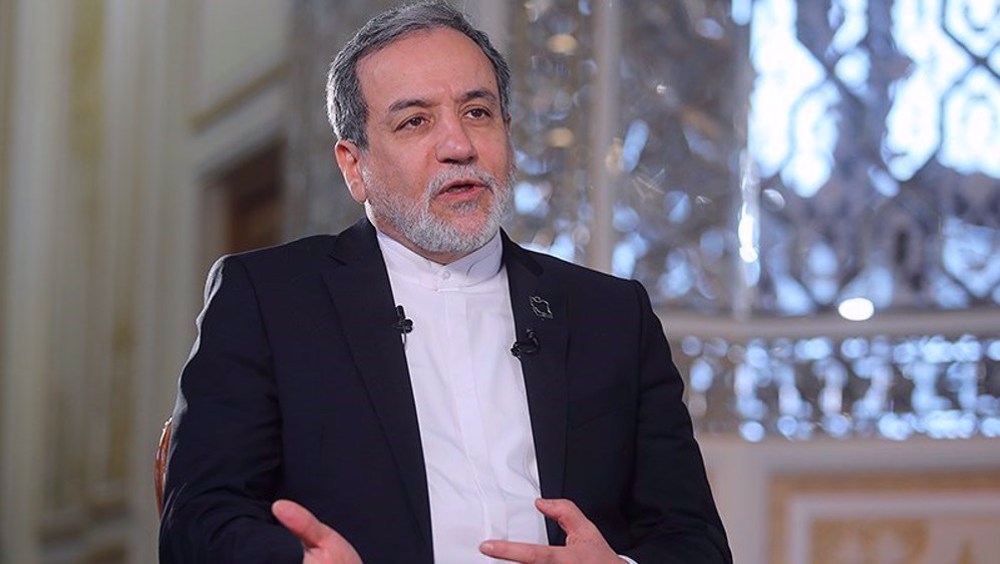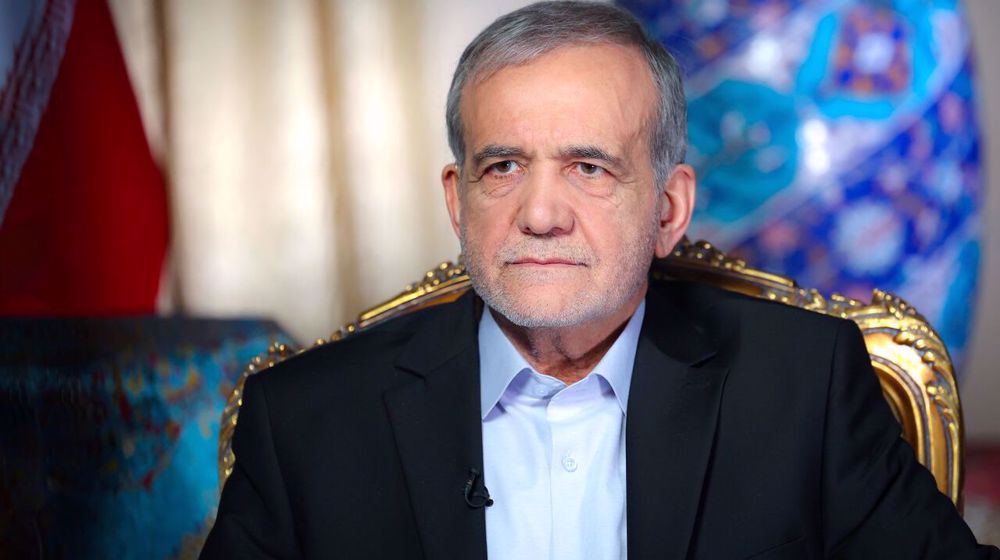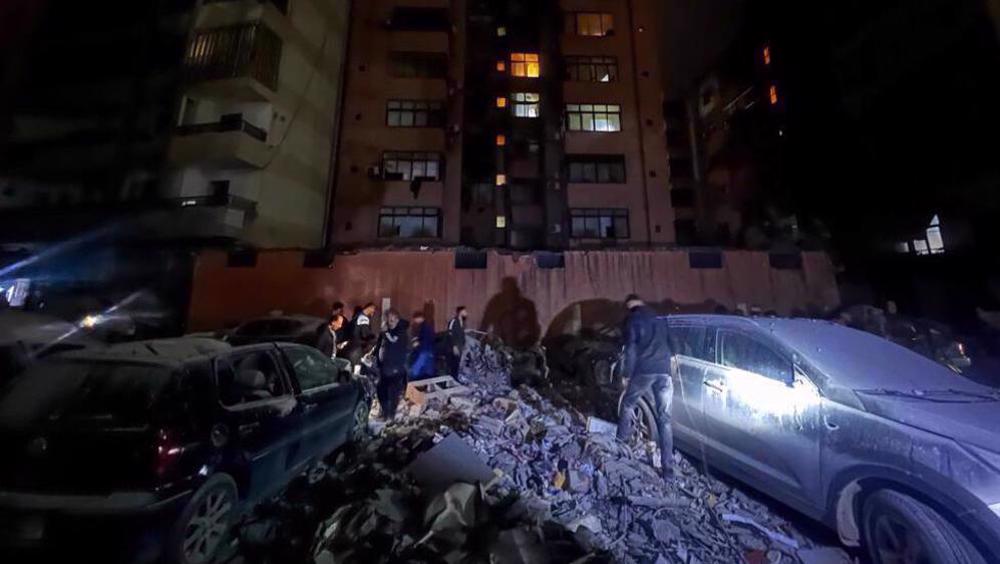Iran FM urges diplomacy, warns against ‘illusions’ on Syria
Iran’s Foreign Minister Mohammad Javad Zarif stresses the importance of pursuing a “political solution” to the Syria crisis, warning against entertaining “illusions” about the situation in the Arab country, Press TV reports.
Zarif made the remarks in response to a question from PressTV correspondent on Friday about Iran’s stance on the Saudi offer to send ground forces into Syria and the recent US assertion about a “plan B” on Syria.
“I think what is important for everybody is to focus on a political solution and not on complicating factors particularly boasting about situations that are more illusions than reality,” Zarif said on the sidelines of a meeting of the International Syria Support Group (ISSG) in Munich.
The idea of Riyadh’s possible participation in ground operations in Syria was first raised on February 4 by Ahmed Asiri, a spokesman for the Saudi Defense Ministry.
Syrian Foreign Minister Walid al-Muallem slammed the initiative, saying “coffins” await any aggressor in the country “whether they be Saudis or Turks.”
On the eve of the Munich talks, US Secretary of State John Kerry told The Washington Post that in case of lack of seriousness by Russia and Iran for the resolution of the crisis in Syria, “then there has to be consideration of a Plan B.”
He added that “Plan B” would consist of “a coalition against (the Daesh Takfiri terrorist), and also to support the opposition against Assad.”
Zarif further said despite the agreements during the Syria talks in Munich, the sides faced “conceptual” disagreements.
“Whether some of the countries in the region continue to believe that these terrorist, extremist organizations constitute a bargaining chip for them, whether they can even provide short term advantage or whether they can wake up and see that these are threats first and foremost against them before they are even a threat against the rest of the region,” the Iranian foreign minister pointed out.
“But the agreement generally is to have a comprehensive humanitarian assistance and comprehensive cessation of hostilities which if implemented is a step in the right direction,” he said.
He added that there are currently “major challenges” to the Syrian issue because it would be “very difficult” to distinguish some of these organizations from “known terrorist and extremist organizations.”
“Everybody agrees that known terrorist and extremist organizations are not going to be a part of the ceasefire,” Zarif said.
The Iranian foreign minister reiterated the Islamic Republic’s stance, saying, “As I said, again, first and foremost it is important for everybody to realize that there is no military solution to the problem in Syria.”
“That terrorists and extremists are no leverage for anybody against others and everybody should cooperate and abandon the wishes that they could impose a solution on the Syrian people and should allow the Syrians and facilitate for the Syrians to engage in a negotiation to end this crisis,” Zarif added.
Hopes for ‘wise’ solution to Syria crisis
In a televised interview on Friday, Zarif expressed hope that the outcome of the Munich meeting on the Syrian crisis will lead to a wise approach that would end the suffering of people.
“I hope that the Munich negotiations will lead to a wise solution through the acceptance of realities by those who have kept, with their illusions, the Syrian people in pain and suffering and killing and homelessness,” he said.
He also hoped that the meeting would manage to end the “humanitarian catastrophe” in Syria.
Zarif meeting Russian, Chinese counterparts
In a Friday meeting between Zarif and his Russian counterpart Sergei Lavrov on the sidelines of the Munich meeting, the two foreign ministers stressed the importance of further development of relations in favor of mutual interests.
"They discussed topical issues of bilateral cooperation and exchanged views on a number of issues of international and regional policy," Russian Foreign Ministry said.
"The mutual disposition to further strengthening of Russian-Iranian cooperation in the interests of ensuring stability and security in the Middle East region was reaffirmed," the ministry added.
In a separate meeting on Friday, Zarif and China’s Foreign Minister Wang Yi discussed the latest situation in Syria and ways to improve Tehran-Beijing relations.
The Chinese minister said that all parties should "abandon military methods in order to settle the Syrian issue by political means," RIA Novosti reported.
"I hope that Iran will play an active and constructive role here," he added.
Wang also called on Iran and China to deepen cooperation.
Zarif meeting IAEA chief, top officials
The Iranian foreign minister held separate meetings with Director General of the International Atomic Energy Agency (IAEA) Yukiya Amano and a number of senior officials on the sidelines of the Munich Security Conference (MSC) on Friday.
Zarif sat down with Slovenian President Borut Pahor, Iraqi Prime Minister Haider al-Abadi, foreign ministers of Netherlands Bert Koenders, Ukraine Pavlo Klimkin and Georgia Georgy Kvirikashvili as well as former United Nations Secretary General Kofi Annan.
He also met with Pakistani Defense Minister Khawaja Asif and Deputy UN Secretary General Jan Eliasson.

Iran says US threats of military action will ‘complicate situation’ for talks

Pezeshkian: Iran seeks stronger ties with neighboring countries

Iran condemns Israel’s continued aggression against Lebanon
Israel rewards surrender with erasure: Lebanese analyst
Netanyahu says Qatar 'not an enemy state'
UN rights body demands Israel 'prevent genocide' in Gaza
VIDEO | Unceasing genocide vs. Palestinians
VIDEO | Iran's response to Trump's threat
US orders social media screening for student visa applicants to bar those critical of Israel
VIDEO | Iran marks anniversary of Israeli attack on embassy in Damascus
Hamas slams Ben-Gvir’s storming of al-Aqsa Mosque as ‘dangerous escalation’






 This makes it easy to access the Press TV website
This makes it easy to access the Press TV website